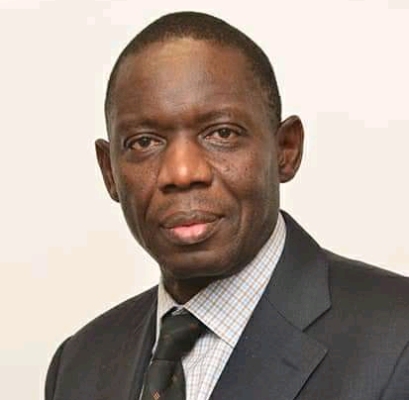Michael Atingi-Ego, the BoU Deputy Governor
The Bank of Uganda (BoU), the Uganda Institute of Banking and Financial Services (UIBFS), the Uganda Bankers’ Association (UBA), financial sector regulatory institutions, financial service providers, development partners, and other stakeholders have jointly invited all savers to entrust their money with the regulated financial institutions.
The call was made during the World Savings Day 2022 held at Kampala Serena Hotel on 31st October.
Michael Atingi-Ego, the BoU Deputy Governor, said savings are precious because they are hard-earned.
“Savings are valuable because they are a lifeline on a rainy day. Savings, when accumulated, are power and must be guarded jealously from risks. Would you rather save in a clay pot that cracks easily or in a secure vault in a bank? Can your money grow in a mattress or in a bank that pays interest on savings? Does putting money in a hole in the ground or a box in a roof offer protection from rodents, fire, and flooding or in a bank account that the Deposit Protection Fund insures? Sacrificing and delaying gratification by saving your hard-earned money but then keeping it at home – in a pot, mattress, or hole in the ground – is like taking one step forward and two steps behind. It is a futile endeavour, full of risks,” Atingi-Ego said.
To promote a culture of saving in formal financial institutions, the first International Savings Bank Congress established World Savings Day on 31 October 1924, with Uganda joining this annual commemoration in 2016.
For this year, the World Savings Day was marked under the theme, “Start Small, Grow Big: Be Green Smart”, to inspire the accumulation of savings while preserving the environment.
“Saving money for future goals and protecting the environment are complementary aspects of sustainability. And, just as the time to save money is when one has some, however small the amount; every little step to reduce carbon emissions matters, however global the climate risk,” the BoU boss said.
He noted that timely and sustainable saving is smart saving.
The financial sector is developing a vibrant green finance ecosystem by harnessing technology and innovation to build markets and solutions for transitioning to a low-carbon future, he said.
“We also aim to empower people with effective knowledge and capabilities to save money and access other financial services while minimizing their carbon footprint. For example, savers can access financial services such as savings, investments, payments, insurance, and loans through mobile phones without travelling long distances to physical bricks and mortar branches of financial institutions using carbon-emitting vehicles. It is incumbent on the financial sector to build and extend affordable and userfriendly green financial solutions to the underserved and small earners nationwide,” Atingi-Ego said.
He added: “Our work is clearly cut out because the Financial Capability Survey 2020 showed that only 15% of Ugandans save their money in a deposit-taking financial institution regulated by the Bank of Uganda, while 17% save on their phones using mobile money. Up to 44% of our people rely on Village Savings and Loans Associations, and 42% resort to savings boxes at home. We urge every stakeholder to build an inclusive, vibrant, and safe green finance ecosystem that will crowd-in all those saving money at home.”






